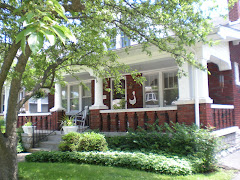Saturday, June 10, 2017
The Truck's Check Engine Light
My father, prior to his death, gave his 1995 Chevrolet S-10 pick-up to our son. That son recently purchased a new car so the pick-up will now be mine. The pickup has a lot of miles on it. I'm sure that I don't ever want to get too far out of town with it. The truck has a lot of rust spots. The spare tire, which used to be kept by a cable under the truck bed, fell off in the middle of a busy intersection a few weeks ago. Rust had finally eaten through the cable. The pick-up has a clutch and stick shift so neighbors who've asked to borrow it, come back to the house saying, "I don't know how to drive that." For sentimental reasons as well as my belief that every family needs an old truck--you never know when you, family or a friend might need it, so I'll keep it. A colleague and I recently used the truck to carry some furniture to his Church. As we loaded the furniture two small rusted parts seemed to fall out of under the bed, but we couldn't see what they were so we went on. As we drove to his Church, the truck began making a squeaking noise but it stopped by the time we reached the Church. On the return trip the "Check Engine" warning light came on, so we slowed down. That warning light went off before we got back to the house. Maybe the old truck fixed itself or perhaps it was just reminding me to slow down because it didn't want to go so fast. Most of us need a personal "Check Engine" warning light to remind us to slow down. Maybe we already have those "Check engine" warning lights but we don't recognize them. Anger, anxiety, confusion, forgetfulness, hurriedness, obsessed with work, too much time on the phone or computer, etc., could these things possibly beT a "Check Engine" warning light?
Tuesday, June 6, 2017
Innocent and Sober Trust
Trust is one of those words and concepts that we seem to use regularly and without much clarity or distinction. We trust our spouse, the bank, the car to start and we trust Jesus. Some folks seem to trust easily whereas others expect someone or an organization to earn their trust. I have come to think of at least two types of trust. The first is what I've called "innocent trust." It is that trust that comes most easily. It is trusting someone or some organization because they have given us no reason to be suspicious or not to trust them. Some folks have so much innocent trust that they get hurt easily by their naivete. The other type of trust, I call "sober trust." This type of expects someone or an organization to earn their trust. It is the type of trust that must be earned when someone has given others reasons to be suspicious of them. If a spouse has had an affair, for example, there will no longer be any innocent trust. That type of trust is gone and can't be recovered. However, if the offending spouse will work at being trustworthy, he or she may earn sober trust. Sober trust has lost its innocence. However the person may be willing to trust again, but with a much more sober view of reality. Sober trust is hard work and will involve the grief of loosing innocent trust. How does one earn sober trust? It may be earned one day at a time as the offending person gives evidence of his/her trustworthiness and the other person must be willing to take the risks that are part of trusting.
Subscribe to:
Comments (Atom)

